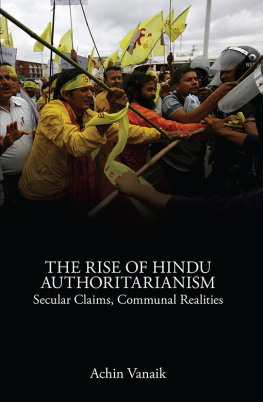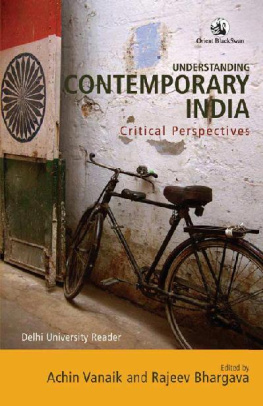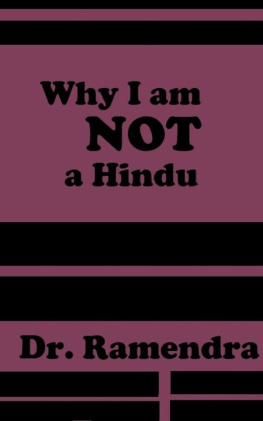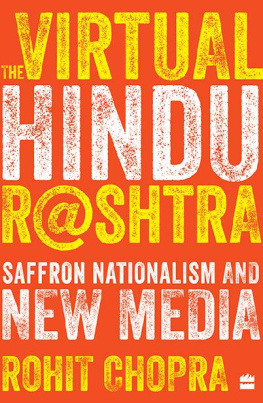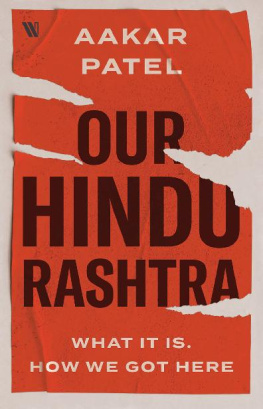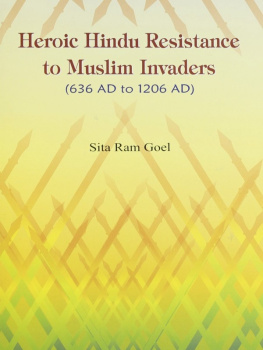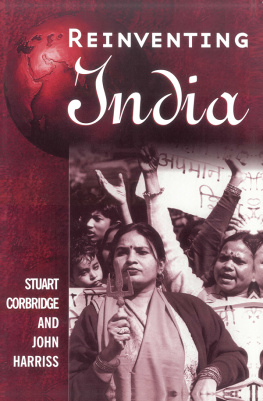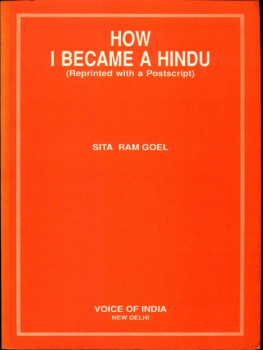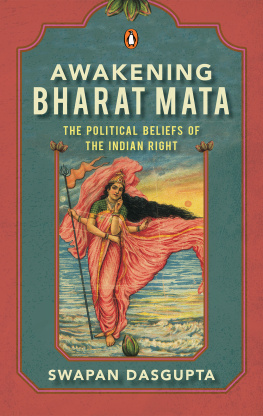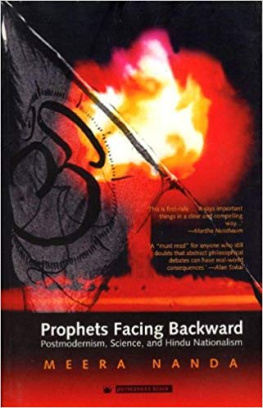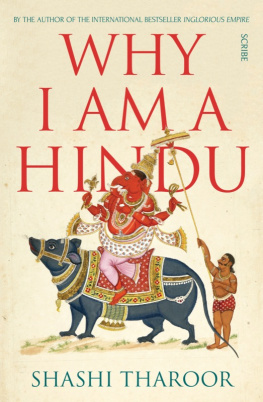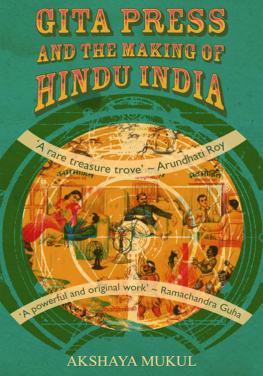The Rise of Hindu
Authoritarianism
Secular Claims,
Communal Realities

ACHIN VANAIK

For Anish and Samar
This updated and expanded edition is based on Achin Vanaiks
The Furies of Indian Communalism, first published by Verso 1997
First published by Verso 2017
Achin Vanaik 2017
All rights reserved
The moral rights of the authors have been asserted
1 3 5 7 9 10 8 6 4 2
Verso
UK: 6 Meard Street, London W1F 0EG
US: 20 Jay Street, Suite 1010, Brooklyn, NY 11201
versobooks.com
Verso is the imprint of New Left Books
ISBN-13: 978-1-78663-072-8
ISBN-13: 978-1-78663-073-5 (UK EBK)
ISBN-13: 978-1-78663-074-2 (US EBK)
British Library Cataloguing in Publication Data
A catalogue record for this book is available from the British Library
Library of Congress Cataloging-in-Publication Data
A catalog record for this book is available from the Library of Congress
Typeset in Galliard by MJ&N Gavan, Truro, Cornwall
Printed in the US by Maple Press
C ontent s
First let me express my gratitude on two counts to Perry Anderson. When he last visited India and on seeing the changing political climate then, he had urged me to rework and update my 1997 study to make it a more contemporary reader for an audience at home, and especially abroad, to achieve a better understanding of this rising spectre of Hindu communalism. But it was the reception in progressive Indian circles of his 2013 book The Indian Ideology that stirred me sufficiently to get on with what I had earlier considered doing, but for one seemingly valid reason or the other, kept putting off. What surprised and even dismayed me was not that strong disagreements with his book had been voiced by prominent intellectuals belonging to a left and left-liberal milieu. But why was there no acknowledgement by these critics of the great political value of a text that so systematically, comprehensively and lucidly punctured the smugly false self-image that far too many Indian liberals (let alone right-wingers) carried of their country?
It brought home to me that progressive thought in and about India had now come to inhabit a basically post-Marxist space much more concerned to reveal the distinctiveness of an Indian civilization and culture which Western-inspired conceptual frames (like Marxism) are presumably incapable of adequately appreciating. Among those holding such a view, many an exaggeration of the quality of Indian modernity and secularity has followed. Hence the implied riposte carried by the subtitle of this book. My own analytical spectacles remain those of a Marxist which is not to deny the necessity of thinking through, across, beside and beyond the Marxist tradition as well, for Marxism is not and does not claim to be a theory of everything.
This book would not have the shape it does if I had not learned so much from my interactions with many people. These include the Sarkars, Tanika and Sumit, as well as my comrades from the Centre of Marxist Studies that we collectively set up a few years ago to promote an anti-bureaucratic and anti-Stalinist commitment to the project of bringing about a truly democratic socialism. My thanks to Anil Chaudhury, Wilfred DCosta, Vivek Chibber, Kunal Chattopadhyay, Soma Marik, Mihir Desai, Archana Agarwal, Sushovan Dhar and Bodhisatwa Ray. A special debt is owed to my . Nor can I forget Sebastien Budgen and Duncan Ranslem of Verso; the first for his encouragement and for keeping me to necessary timetables, the second for his painstakingly thorough and scrupulous copy-editing that has made an often dense text both more precise in the laying out of its arguments and freer of errors.
Last, but far from least, I am grateful for the encouragement and support I have always had from my partner Pamela, to whom I dedicated my first book, and my sons Anish and Samar, to whom I dedicate this one.
It was in 1997 that I first undertook a book-length study of what I then called the communal phoenix that was rising to cast its shadow over Indias body politic. If, between 1947 and 1990, the advance of political Hindutva (roughly Hinduness) had been relatively slow, although accelerating from the mid 1980s, it was in the 1990s following the Ram Janmabhoomi, or Ram Temple movement (the single greatest mass mobilization since the era of the independence struggle), culminating in the destruction of the Babri Masjid in the town of Ayodhya in December 1992 that the transformative power of Hindu communal forces in India really became apparent. This event focused the minds of many Indian intellectuals and activists committed to the preservation and promotion of secularism, and I noted with approval in The Furies of Indian Communalism (henceforward; Furies) that, as a result, the work of many Indian intellectuals had helped raise the quality of the general debate on secularism above existing theoretical and political levels, even worldwide.
Some two-and-a-half decades later, what do we find? Between 1998 to 2004, the Bharatiya Janata Party (BJP) the electoralpolitical wing of the collective cohort of Hindu nationalist forces called the Sangh Parivar (Family) became the hub of the coalition governments that ruled in Delhi. The BJP had become a normalized and respectable political force governing either on its own or in alliances within several Indian states. While the trajectory of the Congress has moved from single-party dominance at the centre to requiring alliances to form the national government, finally reaching its nadir so far in the 2014 general elections, the trajectory of the BJP has been the reverse from alliance partnerships to single-party majority rule and it has replaced the Congress as the biggest national-level political force. This electoral rise both in the provinces and at the centre is part of a wider culturalideological advance, and of a deeper implantation in the countrys structures and institutions.
This political journey of the Sangh Parivar must cause a retrospective reassessment of the secular claims that have often been made for India, in relation to the nature of both the state and society. In Furies, I wrote that
even among those concerned to defend secularism, secularization and the secular, the focus of attention has been mostly on the character, practice and ideal of the secular state, on its laws and its affirming ideology. Much less has been written about the secularization of Indian civil society its advances and retreats, its possibilities and obstacles, its desirability or undesirability. That there is a secularization process going on in the background is generally conceded, but it is the secularity of the state and the ideology of secularism that have been foregrounded in most intellectual discussion. It is generally here that theoretical advances and new insights have been provided.

